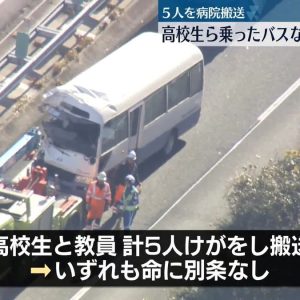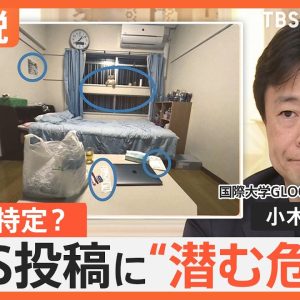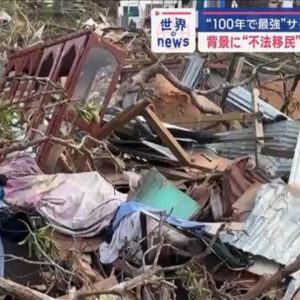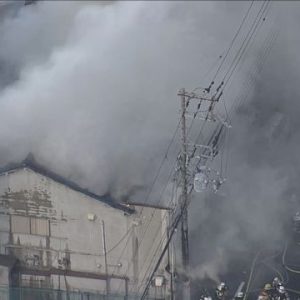A former Hamas hostage bravely shared how she was beaten and 𝑠e𝑥ually assaulted by the terrorists who kidnapped her as she confronted the leader of a university encampment that was set up earlier this year to protest Israel’s war in Gaza.
Moran Stella Yanai, who was snatched from the Nova Festival and held hostage for 54 days, urged UCLA encampment leader Aidan Doyle to understand the facts of the conflict as the pair came face to face at a debate in Southern California.
Doyle, who previously praised the October 7 massacre, refused to make eye contact with Yanai as she shared the traumatic details of her kidnapping by Hamas, the brutal violence she faced in captivity, and how Gazan civilians celebrated her capture.
The university student, shifting in his chair and appearing uncomfortable as Yanai spoke directly to him, finally made eye contact with her – whilst shaking his head – when she said ‘I really want to hear your side’ and that her agenda was to co-exist.
‘We went to dance. We didn’t attack,’ she stated as Doyle shook his head in disbelief, adding: ‘Don’t get annoyed.’ Yanai asked the student if he supported the actions of Hamas and that if ‘October 7th didn’t happen, would we [be] here, talking right now?’
He replied: ‘Well yeah, actually, we probably would be.’ Yanai’s eyes widened and she asked, ‘You think so?’
Yanai, who is of Egyptian and Moroccan descent, said that despite the horrors she endured in Gaza, she never ‘cursed’ the Palestinian people or ‘treated them like garbage’, adding: ‘I respected them even when they abused me.’
Her raw testimony – which emphasized the importance of dialogue and hearing different perspectives – was seen as a direct challenge to Doyle’s earlier praise of the massacre – as Yanai placed the human cost of the attack front and center.



Yanai and Doyle met at a debate in June this year, which also featured Mosab Hassan Yousef, the son of Hamas leader Sheikh Hassan Yousef. Video of the conversation premiered on YouTube on Monday.
The former hostage opened the discussion with a personal invitation to Doyle, urging him to visit her hometown of Beersheba in Southern Israel.
Yanai, stating that while they might not share the same opinions, urged Doyle that understanding the facts and hearing different perspectives are essential steps toward coexistence.
The room fell silent as Yanai spoke directly to the UCLA encampment leader, who avoided eye contact as much as possible and shifted in his chair.
‘When I was taken to Gaza, I was kidnapped, I was caught three times,’ she said. ‘On the last time, I was caught by 13 Hamas terrorists.’
Yanai had been at the festival having set up a retail stand days before the rave and spent the time assembling and designing jewelry.
When the attack unfolded, she frantically tried to escape through the desert where the festival was being held near Mount Negev, but broke her leg in the chaos.
She described the physical toll of her captivity in which she also suffered severe bruising and 𝑠e𝑥ual assault. She told of the moments following her abduction.
‘When I was entering Gaza – I saw, 100 percent of civilians celebrating me being taken,’ she said, explaining how she had a broken leg and bruises all over her body.
‘I didn’t know about the other hostages, I thought it was only me.’





The discovery of her kidnapping was a shock to her family, as her 12-year-old niece stumbled upon the news through a viral TikTok video.
‘That’s how my parents found out that I was kidnapped,’ Yanai revealed as she called for Doyle to reflect on his statements.
The video showed Yanai begging for her life as Hamas terrorists shouted in the background.
She was then piled into a Jeep and taken to Gaza where she feared she would be ‘lynched’.
‘Do you know how many bodies I saw? Do you know how much violence was taken on me?’ she asked Doyle.
Yanai was moved between seven heavily guarded locations during her capture where she was watched day and night, had very limited food and water and needed to ask for permission to use the bathroom.
Her words echoed the pain of the trauma she endured at the hands of Hamas and the brutal violence she faces.
She emphasized the attack targeted innocent civilians who had simply gathered to dance at a music festival. Almost 400 party-goers were killed at the festival.
‘They didn’t know that we had 3,000 people in there and told me they planned to move on and kill as much as they could and slaughter everybody,’ Yanai explained.
‘We went to dance. We went to dance. We didn’t attack.’
Yanai was later freed in a rare Hamas hostage swap along with eight others last November.



Despite Yanai’s attempts to put him at ease, Doyle appeared visibly uncomfortable during the encounter.
‘I wish that we can have a private conversation not with this whole audience cuz it’s terrifying me to hear people have that thoughts and I really want to hear your side. I swear really,’ she said.
Later in the debate which was posted to YouTube, an audience member questioned Doyle about the alleged violent behavior within his movement.
Doyle responded, ‘The encampment wasn’t antisemitic… Jewish students were allowed to go to class.’
The video has received ten of thousands of views since it was posted online, but Doyle did not appear to come off favorably.
‘Unfortunately this guy didn’t deserve her respect. He actually mocked her on x. This guy is a psychopath,’ wrote one viewer.
‘She’s a hostage who survived Gaza and this idiot can’t event show a tiny bit of respect. How sick and twisted this world is,’ added another.
‘She speaks so well and he can’t even look in her eye,’ noted one user.
‘She taught him a lesson and he probably still hasn’t realized it,’ stated a fourth.



He explained that removals from the encampment were based on security concerns, not identity, and aimed at preventing violence from agitators.
When asked about solutions for peace, Doyle advocated for a one-state solution with equal rights for all.
‘There needs to be a one-state solution with equal rights and protections for everybody, and a relatively equal distribution of the land for Jews, Muslims, and Christians,’ he said.
However, he acknowledged the difficulty of achieving such a solution, criticizing the leadership of Hamas, the Palestinian Authority, and the Israeli government.
As of September 2024, 101 hostages remain in captivity in Gaza.




